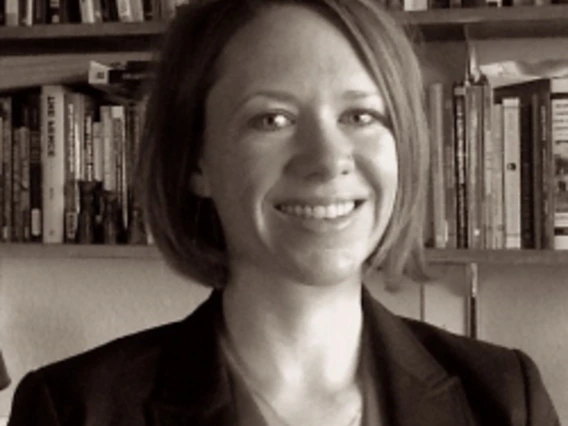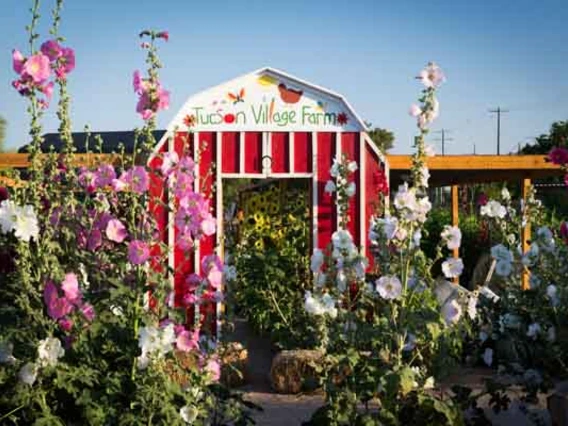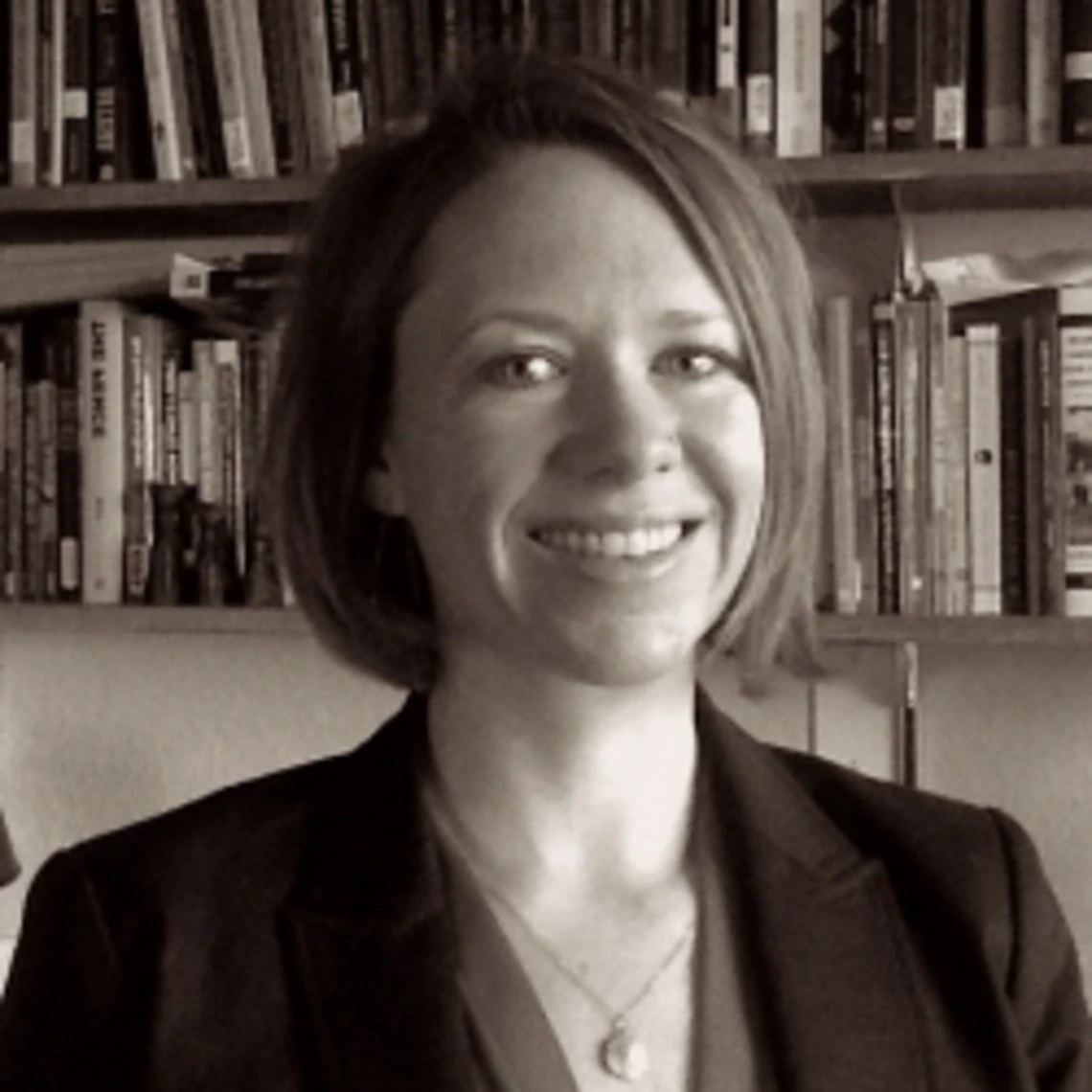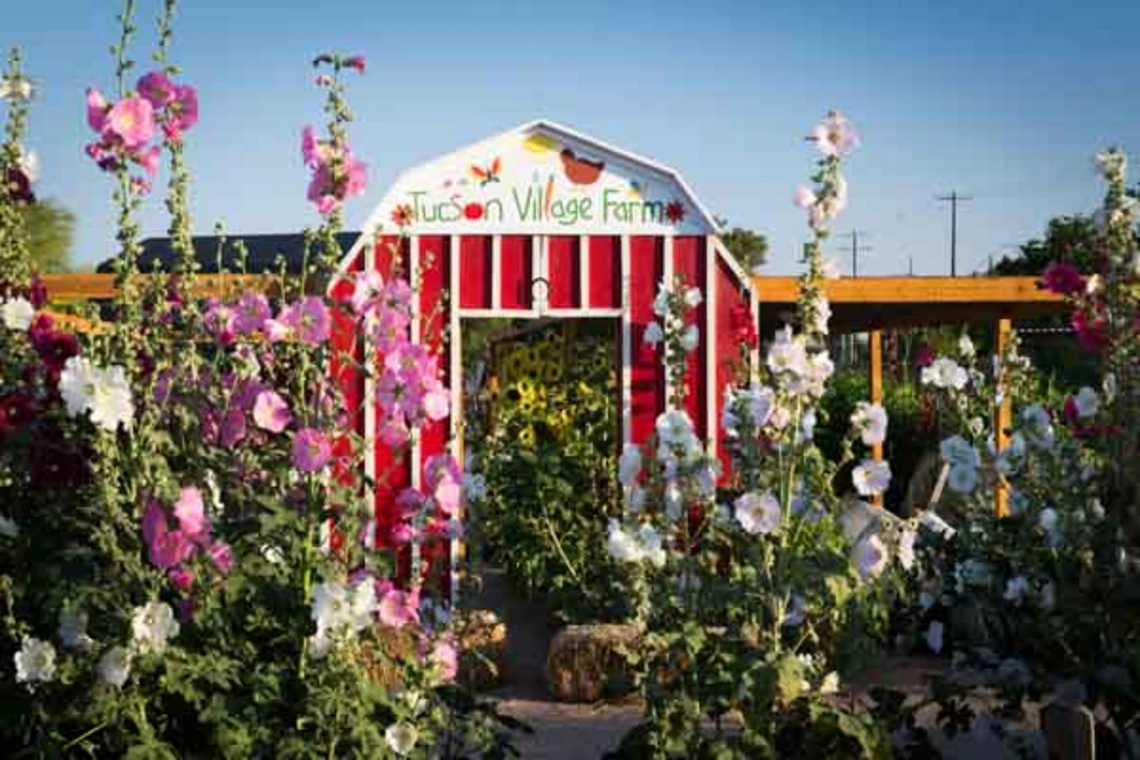The Agnese Nelms Haury Program Announces its 2017 Competitive Awards
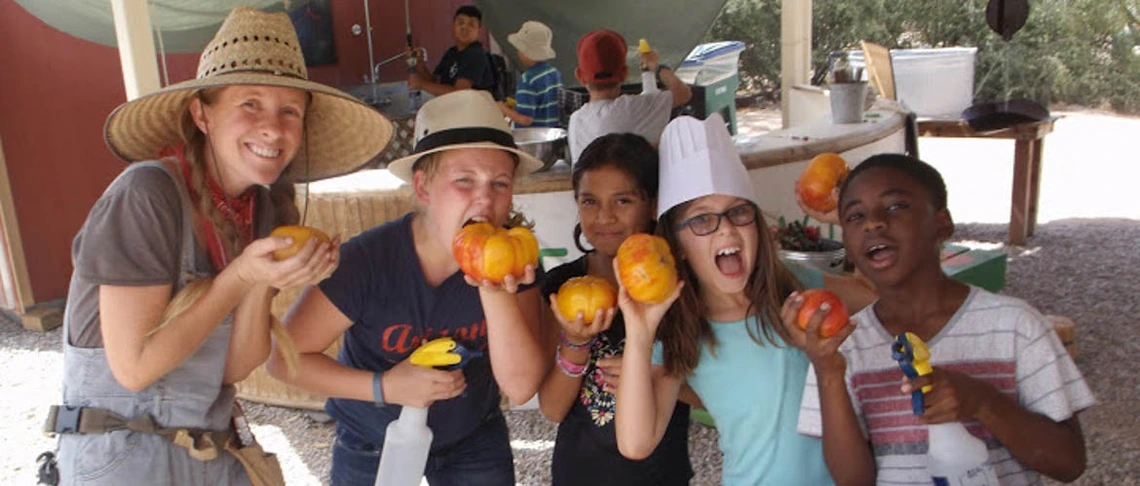
Seed Grants
The Haury Program awards 2-4 Seed Charitable Grants each year to projects that create teams of university and community members to seek solutions to social justice and environmental problems. These projects should demonstrate sustainability and foster authentic relationships between the University of Arizona and the wider community. The Haury Program congratulates three recipients during this award cycle.
“Farmacy” Program
The Tucson Villlage Farm (TVF) introduces youth to healthy food options, teaches them to grow and prepare their own food, and encourages healthy lifestyle choices. TVF is a partnership between the University of Arizona’s (UA) College of Agriculture and Life Sciences and the Pima County Cooperative Extension. In this initiative, TVF partners with the UA’s College of Medicine and El Rio Clinics to launch the “Farmacy Program.” The new project will refer at risk families from El Rio Clinics to TVF where they will receive nutrition education and fresh food options. UA College of Medicine students will gain experience in connecting families’s overall health with nutrition. This multi-partner program is designed to reduce the risk of nutrition-related disease in both children and adults in underserved communities.
Sustainable South Tucson: Seeking New Models for Economic Development in and with Marginalized Communities
Haury Program funding will help to launch the Women’s Impact Fund, a collaboration between the YWCA and the James E. Roger’s School of Law. The fund creates a microlending program which focuses on minority and women entrepreneurs who invest in sustainable projects. Project goals include building a foundation for long-term development in South Tucson as well as creating strategies that are environmentally sustainable for the South Tucson community. The Women’s Impact Fund is a reflection of the Haury Program’s mission to support and empower marginalized groups in a community. This project has the potential to lead the way to the creation of an inclusive and flourishing community for all residents.
Hot Spots for Heat Resilience in Border Cities: A Pilot Study in El Paso, Texas
 Extreme heat episodes create dangerous public health risks. The threat exists for all members of communities but marginalized residents and expectant mothers are some of the most vulnerable, especially in hot spots in colonias, such as San Elizario, Texas. This project, a partnership between AYUDA, Paso del Norte de Promotoras, and the University of Arizona and other academic institutions, focuses on this colonia to build resilience to increasing extreme heat episodes. The team gathers promotoras, researchers and community groups working on these issues along the US-Mexico border to focus on building public understanding and reducing vulnerabilities. The project’s goals include creating a heat health risk training program, providing low cost interventions, and building a model for use in other communities along the U.S.-Mexico border.
Extreme heat episodes create dangerous public health risks. The threat exists for all members of communities but marginalized residents and expectant mothers are some of the most vulnerable, especially in hot spots in colonias, such as San Elizario, Texas. This project, a partnership between AYUDA, Paso del Norte de Promotoras, and the University of Arizona and other academic institutions, focuses on this colonia to build resilience to increasing extreme heat episodes. The team gathers promotoras, researchers and community groups working on these issues along the US-Mexico border to focus on building public understanding and reducing vulnerabilities. The project’s goals include creating a heat health risk training program, providing low cost interventions, and building a model for use in other communities along the U.S.-Mexico border.
Faculty Fellows
We congratulate the Spring 2017 Faculty Fellows. The Haury Program provides awards to support their individual efforts as part of the Haury Program’s mission of creating transformational change in the areas of environment and social justice throughout the Southwest.
Jill Williams
 Dr. Williams is currently the Director of the UA Women in Science and Engineering (WISE) Program. Her Haury Program Faculty Fellowship will allow her to collaborate with Dr. Sara Tolbert of the UA College of Education to study the relationship between environmental education and the ideals of motivation and self efficacy among groups that are underrepresented in the sciences.
Dr. Williams is currently the Director of the UA Women in Science and Engineering (WISE) Program. Her Haury Program Faculty Fellowship will allow her to collaborate with Dr. Sara Tolbert of the UA College of Education to study the relationship between environmental education and the ideals of motivation and self efficacy among groups that are underrepresented in the sciences.
Ben McMahan
Ben McMahan’s research centers on the environment and public health. His current research focuses on climate risks that threaten the Southwest and how to develop community-centered solutions to mitigate these risks. Haury Program funding will help McMahan develop a citizen science precipitation-logging network. These pollution monitoring stations would build awareness of local conditions and empower residents to learn more about the local weather conditions and their implications

